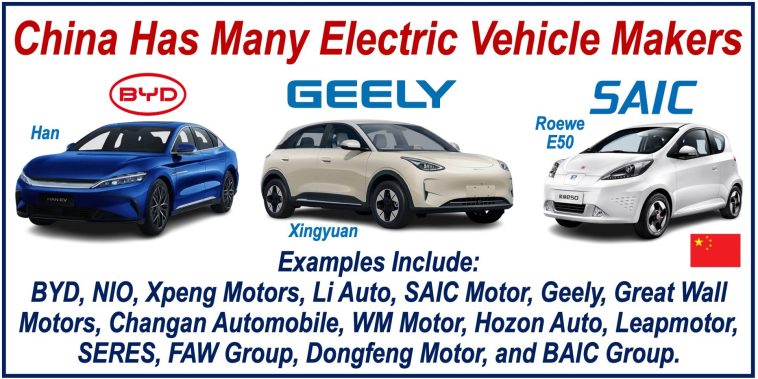Introduction of Tariffs on Chinese EV’s (electric vehicles) to Protect EU Car Industry
The
These tariffs on Chinese EVs, which could increase to as high as 45%, are intended to safeguard Europe’s domestic car industry from what EU officials view as unfair competition.
Chinese manufacturers, including BYD, Geely, and SAIC, have received substantial state subsidies, allowing them to offer lower-priced vehicles, which poses a threat to the competitiveness of European automakers.
The decision marks the EU’s most significant trade clash with China in over a decade and is designed to counterbalance these perceived market distortions.
However, the introduction of tariffs could lead to price increases for EV buyers across Europe, as higher import costs may be passed on to consumers.
Division Among EU Member States
The vote to impose these tariffs has revealed divisions among EU member states.
France, Italy, Poland, and the Netherlands were among those supporting the tariffs, emphasizing the need to protect local manufacturers.
Germany, which has strong economic ties with China, was one of the five countries that opposed the move. The German car industry, heavily reliant on exports to China, has expressed concerns that the tariffs could trigger a trade war, potentially harming their businesses further.
While 10 EU countries voted in favor of the tariffs, five were against, and 12 abstained.
Despite the split, the European Commission now has the authority to implement these tariffs on Chinese EVs for five years.
Here is a breakdown of how EU member states voted:
Bulgaria, Denmark, Estonia, France, Ireland, Italy, Latvia, Lithuania, Netherlands, and Poland.
Germany, Hungary, Malta, Slovakia, and Slovenia.
Belgium, Croatia, Cyprus, Finland, Greece, Luxembourg, Portugal, Romania, Spain, Sweden, and Czech Republic.
Potential Consequences of Trade War
The decision to impose tariffs has raised fears of a broader trade conflict between the EU and China.
China has already warned of possible retaliatory measures, with specific threats targeting European exports such as brandy, dairy products, and pork. Industry groups, particularly those representing the French cognac sector, have voiced concerns that their products may be targeted, leading to significant economic consequences.
Moreover, there are concerns that this trade dispute could escalate beyond the automotive sector, affecting other industries reliant on European exports to China.
The situation has prompted some EU officials to call for further negotiations to avoid a full-blown trade war.
Impact on Electric Vehicle Prices and Industry
One of the most immediate consequences of the new tariffs will likely be an increase in the price of electric vehicles.
Chinese EVs, known for their affordability, could see significant price…

